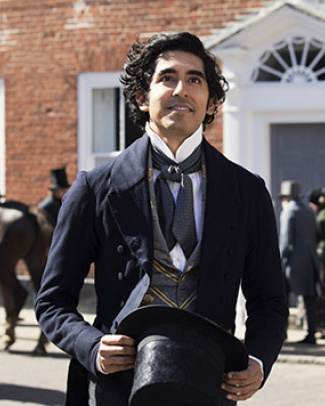The only issue I have with with Armando Iannucci's David Copperfield, out this week, is...that it is not exactly the film advertised in the trailer. Which does not make it a bad film: but merely continues a trend for trailers of late to misrepresent their subject matter by using selective out-takes that give a somewhat misleading view of what the film is.
A similar trick was played with the also recent JoJo Rabbit which, for those expecting the madcap comedy set out in the trailer, turns out, beneath its witty demolition of Nazi/anti-semitic tropes, to be a sensitive, insightful investigation of growing up and learning to put aside easy bigotries.
But surely, twas ever thus: and indeed, film-makers will do their best with the material to hand, setting out the best bits to tease and attract the audience. This is true. The issue here is that, like JoJo Rabbit, the trailer offering is, in tone and style very different from what eventually we get on screen.
An exploration of eccentricity
Yes: this Copperfield – here given voice by the appropriately naïve and baffled Dev Patel - homes in on and draws out the ridiculous in each of the characters. The initial rejection of David by his aunt, Betsey Trotwood (Tilda Swinton) – for his failure to be born a girl - is played as incredible, verging on the psychotic. Her subsequent obsession with donkeys being ridden across her private meadow is more of the same. Likewise the fey, deranged behaviour of Mr Dick (Hugh Laurie), her house companion and distant relative, whose broken mind is unable to progress beyond obsessing over King Charles I.
The impossibly optimistic Mr Micawber (Peter Capaldi): the creepy, self-aggrandising Uriah Heep (Ben Whishaw).
And yet.... And yet....if, like me, your last encounter with the story of David Copperfield was many decades since, and through some worthy and tedious BBC dramatic adaptation of Charles Dickens' story, you might be surprised to realise just how faithful to the original this film is.
The real David Copperfield
The Personal History Of David Copperfield, to give it its full title is a story of personal tragedy and redemption. Born to a widowed mother in Victorian England, the young David suffers poverty, abuse at the hands of his step-father, exploitation in a sweatshop factory and bullying at school. Despite this, and despite all that life can throw at him, he picks himself up, and finds fame and fortune as a journalist and writer. Any suggestion that there is here to be found a strong authorial presence... would be entirely justified!
Along the way, and after a false start with the wholly inappropriate Dora (Morfydd Clark), he finds true love with Agnes (Rosalind Eleazar).
And this, despite the odd tweak here and there, is pretty much what Dickens wrote. The problem – for some – is that, being used to the idea that this is “Great Literature”, with a capital G, it must be ponderous, serious: certainly not a thing to make you smile or worse, laugh out loud.
Great Literature comes in many guises
All of which misses the point. For literature that has depth is capable of multiple explorations. And if Iannucci has looked into the heart of Copperfield and returned with a work of such joy and natural comedy, who is to say that Dickens would have dismissed this in preference for more naturalistic approaches to his work.
I have even seen one critic suggest that Iannucci's preference for the light and comic here replaces social commentary and the political dimension of Dickens' work. But, au contraire, it felt that for those viewing with open eyes, that message was there for all to see.
Indeed, as Iannucci proved in his last major film work – The Death of Stalin – comedy and political insight are more than capable of working hand in hand.
So, no: despite the trailer, this is, for purists, a mostly faithful adaptation of the novel. It's just that where other directors have seen tragedy and darkness, Iannucci has here drawn out the ludicrous and the light. And returning to the original text, I am not sure he is wrong.
An excellent film with the added bonus that it might just persuade some folks – myself included – that Dickens now, just as when he first wrote, is for all and not just for some po-faced literary elite.
Four stars.


